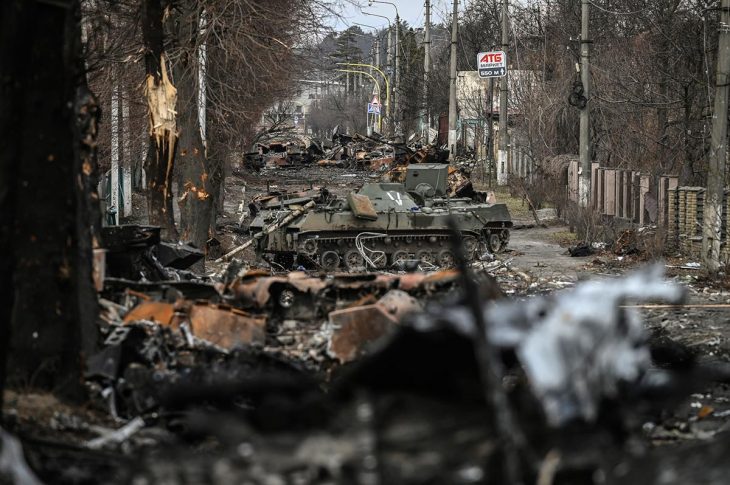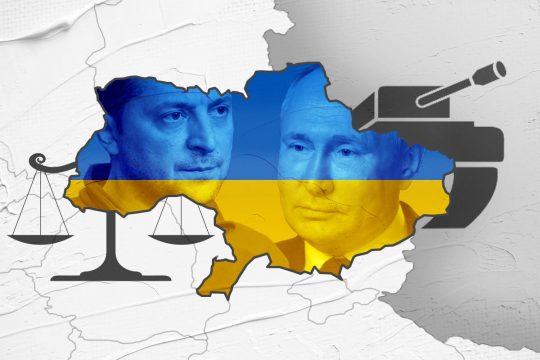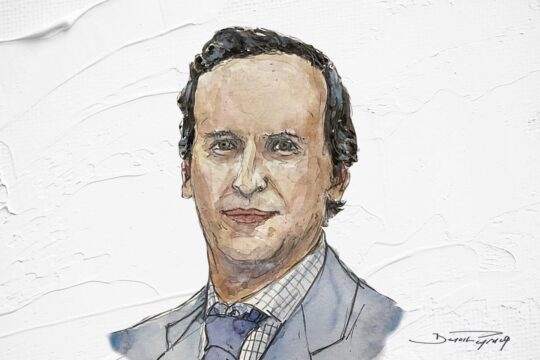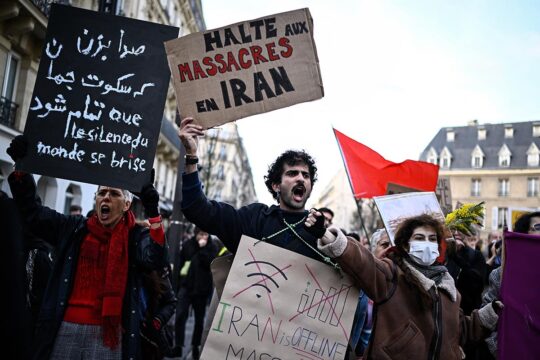To listen to the podcast, click on the "play" button below:
It’s just over four months since the Russian invasion of Ukraine, and with some individuals already being tried in the Ukrainian system for war crimes, we want to get an overview of where we are at with accountability mechanisms for Ukrainian victims. We do so with the help of Ukrainian law experts, professor Mykola Gnatovskyy and Kateryna Busol, Academy Associate at Chatham House interviewed in March. And with Howard Morrison, Independent Adviser to the Ukrainian Prosecutor General, Iryna Venediktova interviewed in May. The issues of how to make ‘justice’ work for survivors are still unresolved.
On the eve of the International Accountability Conference for Ukraine co-hosted by the Netherlands on July 14, we discuss the four potential paths to justice for war crimes and crimes against humanity in Ukraine. First, Ukraine’s domestic prosecution, described by Morrison as ‘impressive’ in the face of an overwhelming number of crimes. Second, the option of universal jurisdiction, and how a coordinating mechanism like Eurojust may play a role. Thirdly, a possible hybrid international court could be set up as part of the Ukrainian system. And last, prosecution by the International Criminal Court. On the new prosecutor’s approach, you can also check back an episode we recorded with Karim Khan as he came to the end of his work with UNITAD and spoke about picking select representative cases – maybe an indication of the future for Ukraine at The Hague?
We also dig deeper into what are the benefits and challenges of the ICC investigations into Ukraine, as observers, Amnesty International among others, send an alarm about the potential double standard in the Office of the Prosecutor’s activities and additional state funding of investigations. And with Mykola and Kateryna, we look specifically at the routes to justice sought by Ukraine since the start of the war in 2014, the crime of aggression, and the legacy of Nuremberg in post-Soviet countries. For more background on the Soviet (and female) role at Nuremberg, listen back to our episode with Diane Marie Amann and Francine Hirsch.
 ASYMMETRICAL HAIRCUTS
ASYMMETRICAL HAIRCUTS
This podcast has been published as part of a partnership between JusticeInfo.net and Asymmetrical Haircuts, a podcast on international justice produced from The Hague by journalists Janet Anderson and Stephanie van den Berg, who retain full control and independence over the contents of the podcast.







